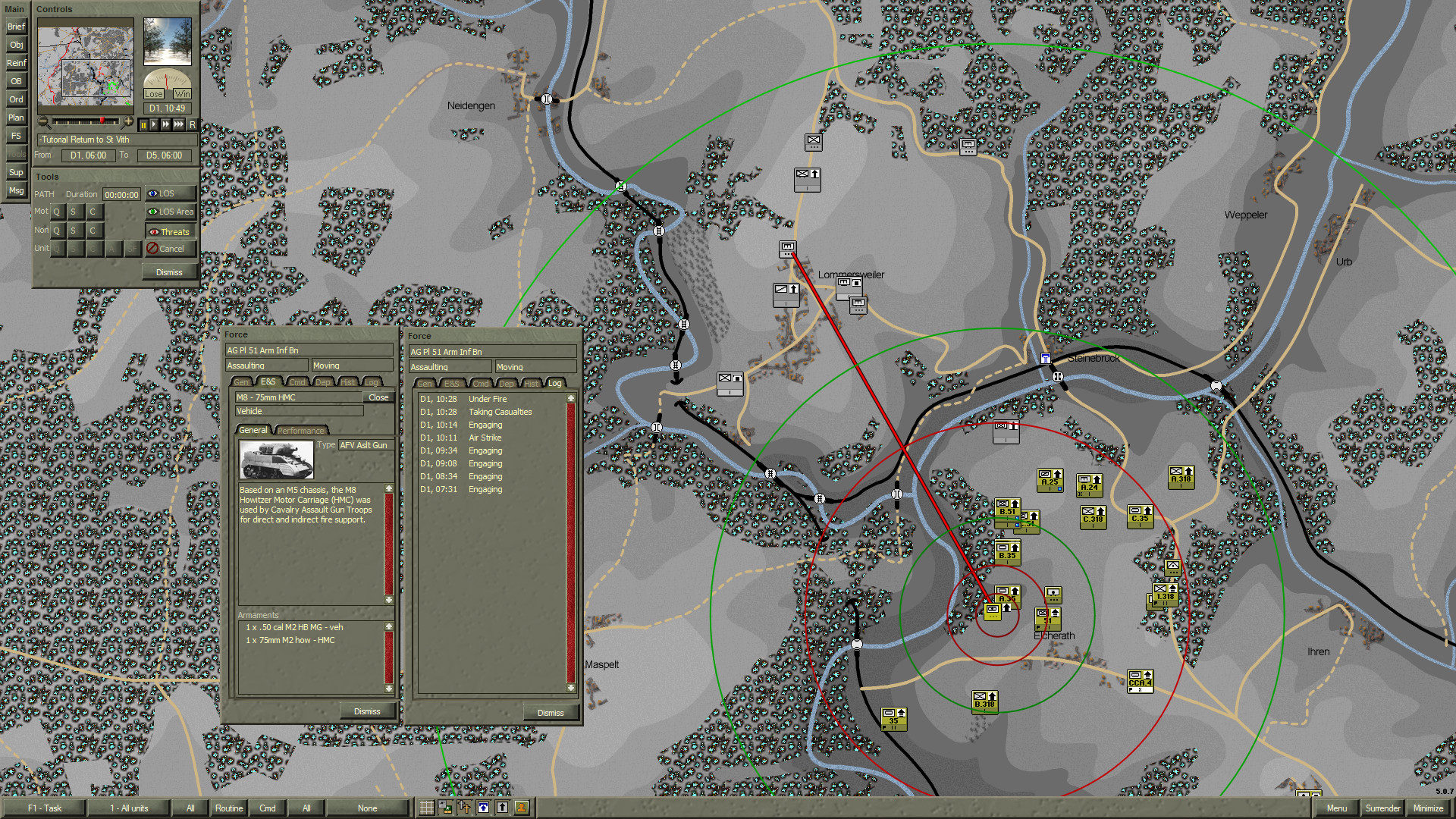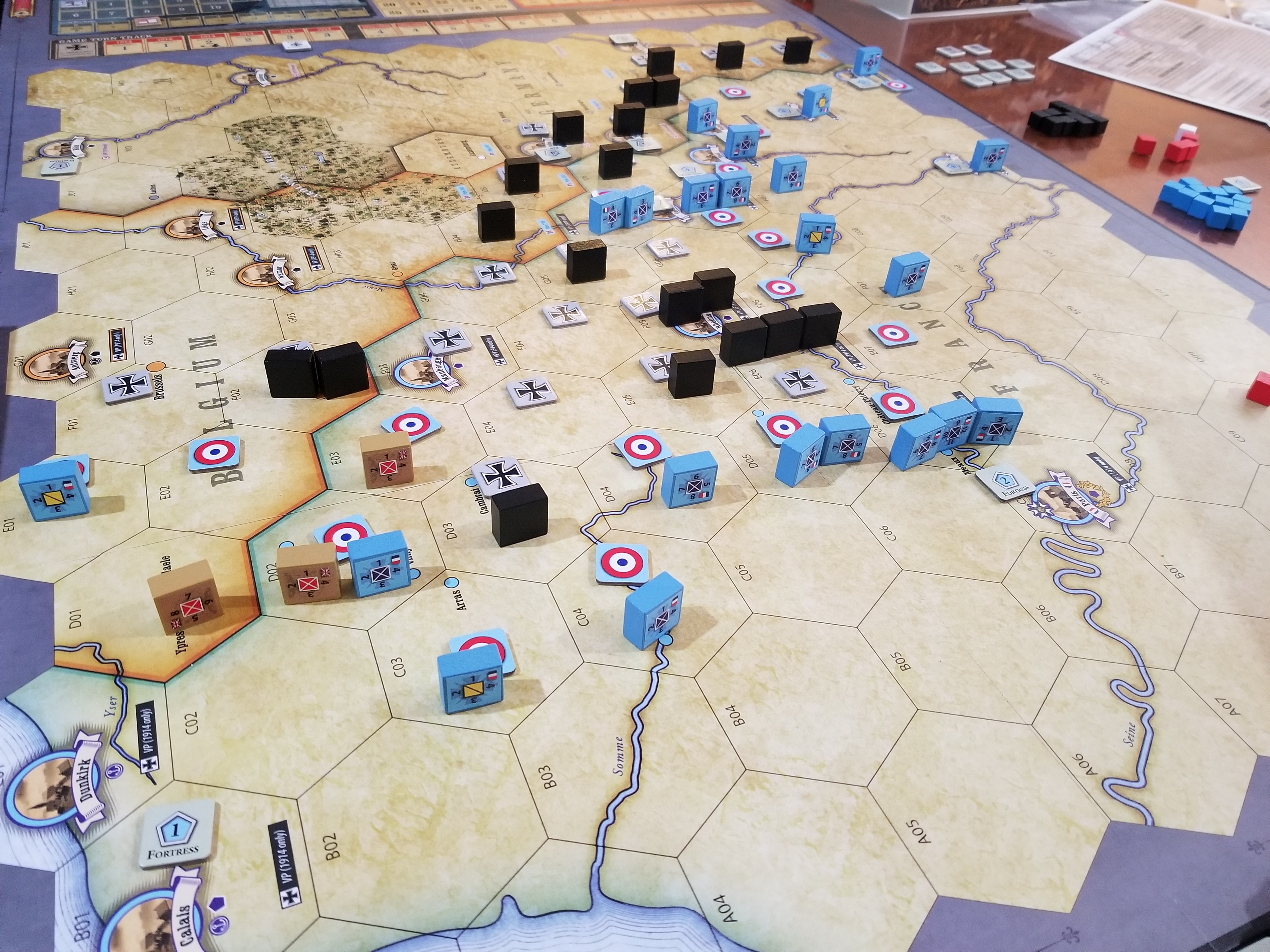This week, board game publisher GMT Games announced a partnership with developer Playdek. Which probably sounds boring, because press releases like that usually are. But I think this announcement could end up being really important, maybe even revolutionary for wargaming on PC. First, though, I need to explain why I went to Portland.
The short version is that I went there to visit a friend and play tabletop wargames with him for the better part of a week. But the longer version is that I sometimes feel the only really great wargaming experiences I have are the ones that take place across a table, with a giant map of Europe, Middle-Earth, or the entire Pacific Ocean between me and an opponent. I have loved wargames since I was a little kid, but at some point in the last few years, my love for it changed. It stopped being something that I could enjoy just by walking across my apartment to my PC, and became instead a hobby that required a trip to the airport.
Videos by VICE
I know there’s an inherent unfairness in this comparison. Playing a game with a friend, where you’re able to discuss and analyze the rules and the state of play as you go, is almost always going to be more fun than playing alone against an AI opponent. The AI can’t sympathize over a bad dice roll, or laugh maniacally when you fall for a trap. It definitely can’t debate whether the supply rules really make sense, or argue about how a game depicts the underlying history. A tabletop wargame is a social experience, a PC wargame is almost always a purely intellectual and mechanical one.

But there’s more to it than that. Because the designers are always the extra guest in a tabletop wargame. You have to engage with them, because they need you to keep the game running. Where a PC game performs a bunch of calculations in the background—and since they’re invisible, there’s a tendency to make them too numerous and complicated for a player to really parse—in order to keep the action moving, a board game requires that you perform those tasks yourself. Which means that eventually you have to know the rules and, hopefully, come to understand their logic.
On the PC, most wargames are still fundamentally re-creating the conventions of wargames of the 1970s: Extremely detailed rules for every aspect of simulated warfare, applied to stacks and stacks of units. Or they’ve applied that logic to one of the things that you can only really do on PC: Real-time (or simultaneous) resolution.
In the world of cardboard-and-dice, something very different has occurred. Wargames and their audience have become more comfortable with abstraction and metaphor. If the tradition that has continued on PC is about modeling enough trees that you eventually have a convincing forest, wargames on tabletop have gone in the opposite direction. They tackle topics big and small with a huge variety of approaches to game design, capturing moments of history in a way that never would have occurred to me, without getting bogged-down in the minutiae and micro-management that is at the foundation of PC wargaming.

So I went to Portland because it was a place to sit down with a friend and have experiences that I just can’t get elsewhere, and see how different designers use a few simple rules and mechanics to make radically different arguments about pivotal historical moments and the dynamics that drove them. It’s like hearing familiar stories told from new perspectives, or in different ways. And while my friend did carefully curate my visit, every game we played brought about some kind of “ah-ha!” moment of revelation or surprise, and forced me to reconsider what I thought I knew about the past. And of the half dozen or so games we looked at over the weekend, all but one was published by GMT.
I don’t mean to say GMT is the only publisher making great, innovative games. There are several. But they’re one of the biggest and most successful, with one of the largest libraries. And with the exception of a breakthrough hit like Twilight Struggle, a lot of their game have remained inaccessible to people who don’t play board games, or don’t have a group of friends to play those board games.
Which brings us back to this GMT-Playdek partnership. Playdek already did a brilliant adaptation of Twilight Struggle, and a pretty damned good adaptation of the wildly popular Lords of Waterdeep. With their new partnership with GMT, this is a chance for audiences on PC to get a taste of the innovation and thematic diversity that makes tabletop wargaming a rabbit hole worth investigating… and for far less than the cost of a plane ticket.

My hopes are further bolstered by what this announcement leads with: Labyrinth: The War on Terror and Imperial Struggle (which is a sort-of sequel to Twilight Struggle, but focusing on colonial competition between Britain and France prior to the French Revolution). With Imperial Struggle slated to come out next year, relatively hot on the heels of the board game’s release, it suggests that this partnership will emphasize keeping PC and tablet audiences roughly abreast of GMT’s biggest releases, rather than making players wait years for adaptations to come along.
But honestly, Labyrinth is the part of the announcement that really catches my eye. Designed by Volko Ruhnke, who has gone on to design a very successful and popular series of counter-insurgency themed games covering anything from Vietnam to Arthurian England, Labyrinth is the game that set the stage for what’s called the COIN Series. But it’s also an older and more challenging game to approach. If I were worried about accessibility and mass appeal, it might not be the game I’d choose to lead off with. So with GMT putting it front and center, I’m left wondering what other parts of GMT’s enormous catalog of board games might be about to receive adaptations in the next few years.

For my part, exposure to a lot of these designs has made it harder to go back to the kind of traditional PC wargaming I’ve known before. By bringing them to digital audiences, Playdek and GMT could actually start changing what digital wargaming means… and perhaps help great games find far larger audiences than they otherwise would. In the tabletop realm, entire wargaming revolutions have occurred that digital audiences have never encountered firsthand. Now, I’m crossing my fingers that Playdek and GMT’s partnership will put tabletop and digital wargames back in dialog with each other, and make it easier for digital wargamers to fight their friends, even if it’s only across a virtual tabletop.




